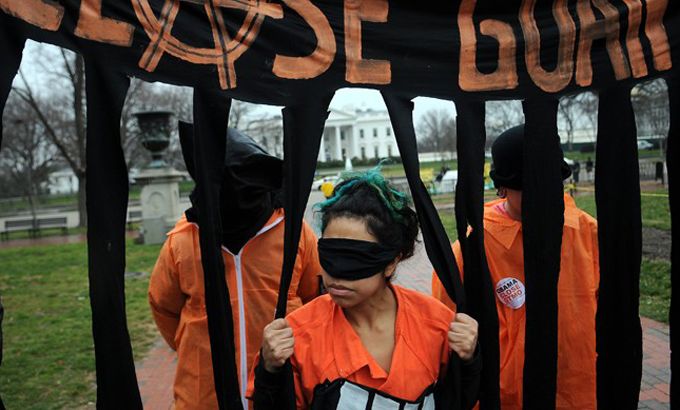
Has torture become acceptable?
A new Hollywood film suggests that harsh CIA interrogation techniques led to the killing of Osama bin Laden.
The brutality of the US’s ‘war on terror’ was highlighted once again this week with the condemnation of the CIA’s use of torture both by members of the US Senate Intelligence Committee and the European Court of Human Rights.
On Thursday, the Intelligence Committee voted to approve its own 6,000 page report on the agency’s detention and interrogation programme.
Keep reading
list of 4 itemsIsrael qualifies for Eurovision final amid Gaza war protests
Slum to stardom: Indonesian film director Joko Anwar is riding high
The surfer chef behind South Africa’s first fine dining halal restaurant
|
“Americans are very deeply divided about whether or not these techniques were the right techniques to use. I think they are convinced that they at least played some role in stopping another terrorist attack on American soil and that therefore there’s really no reason to oppose them.“ – Glenn Greenwald, a columnist for The Guardian |
The report will remain classified, but in a statement the committee said: “The creation of long-term, clandestine ‘black sites’ and the use of so-called ‘enhanced-interrogation techniques’ were terrible mistakes.”
Just a few hours earlier, the European Court of Human Rights delivered its blistering judgement of the conduct of US policy.
It found that the CIA was running a systematic programme of torture and enforced disappearance highlighted by the case of German citizen, Khaled al-Masri.
But is redemption about to be delivered from Hollywood?
The soon-to-be-released film Zero Dark Thirty, which Oscar-winning director, Kathryn Bigelow, claims is a journlistic and “almost documentary” account of the CIA’s hunt for Osama bin Laden, depicts torture as being key to locating bin Laden – a contention that has repeatedly been shown to be false.
But with the film already heavily tipped for next year’s Oscars, is the truth of the operation about to be lost in the popular imagination? Has torture become acceptable?
Joining Inside Story Americas to discuss this are guests: Glenn Greenwald, a columnist for The Guardian; Darryl Li, an international human rights lawyer; and Jesselyn Radack, from the Government Accountability Project.
|
“There’s no question that methodology is controversial, but there was no debate on whether or not to include it in the movie because it’s part of the history. Without the honest and integrity of that sequence you’re not going to feel the weight of the end. The integrity of their work it’s there and you get the whole story, you get the whole 360 degrees, as much as you can in two and a half hours. It all accumulates and adds up to this piece of work that speaks for itself I think.” Kathryn Bigelow, the director of Zero Dark Thirty |